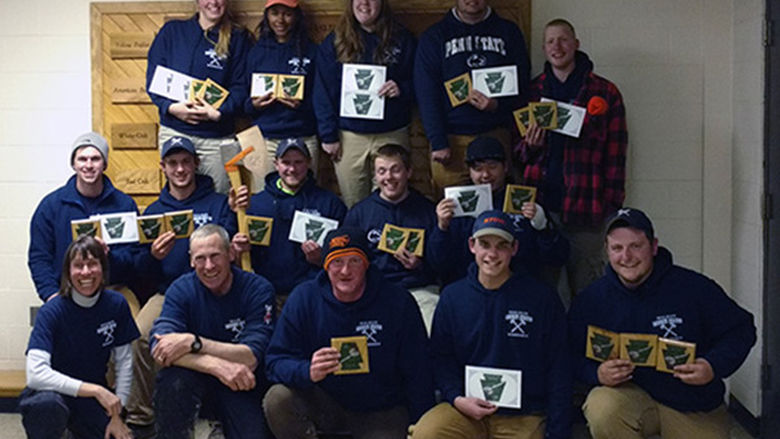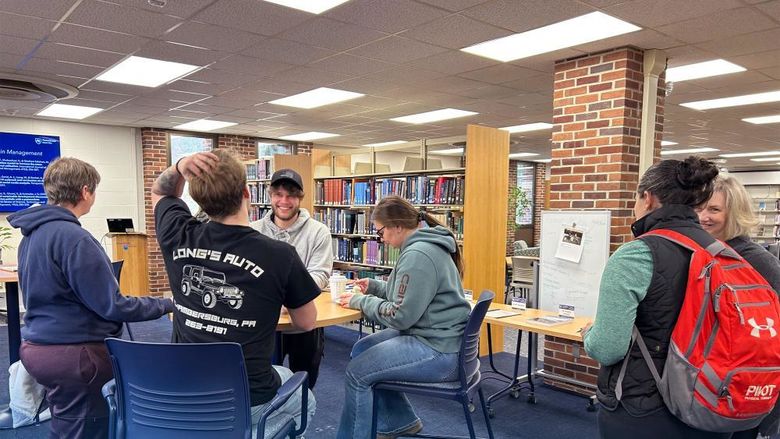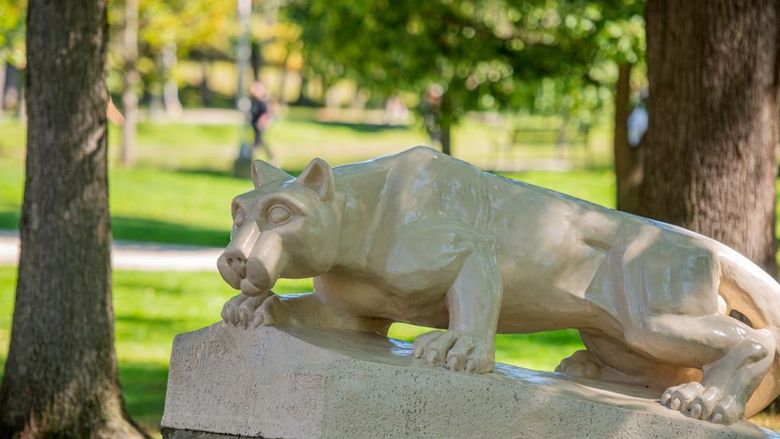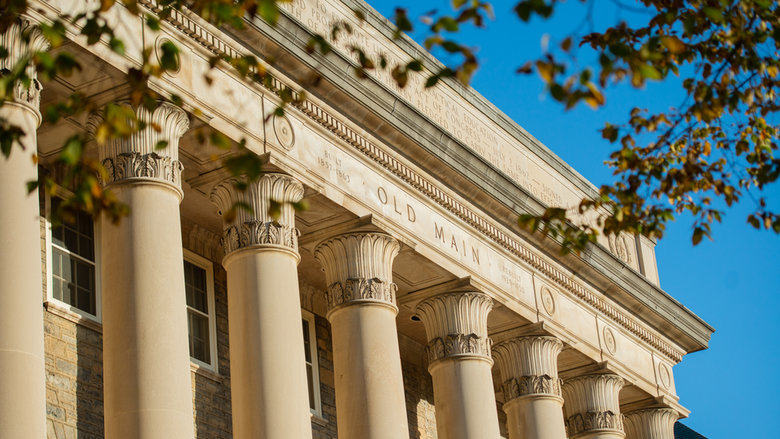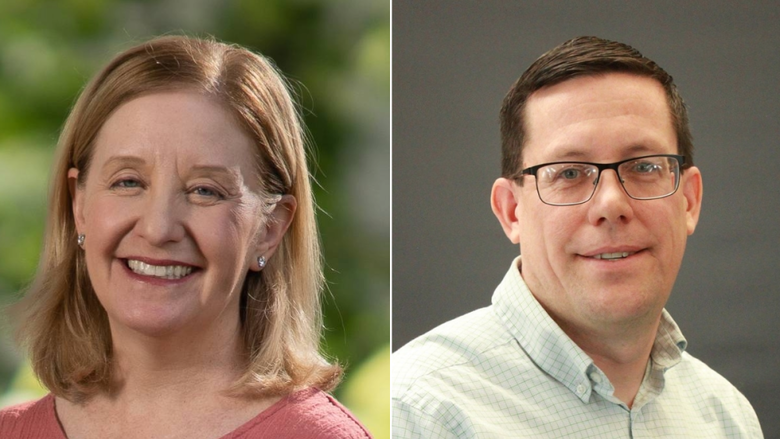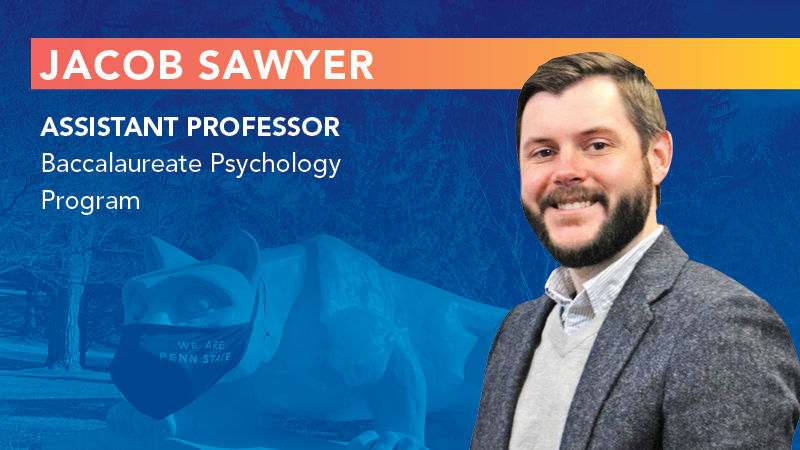
Penn State Mont Alto Assistant Professor of Psychology Jacob Sawyer
MONT ALTO, Pa. — When Jacob Sawyer had the opportunity to do research during his junior year of college, he took the first steps along his vocational path.
A first-generation college student studying psychology at Central Michigan University, Sawyer said he had been an underwhelming undergraduate to that point, but the support and encouragement he received from faculty changed his trajectory. He experienced the allure of research, which he said is “being able to know for a moment in time something nobody else does,” and the chance to expand on information that is already available.
Now an assistant professor of psychology at Penn State Mont Alto, Sawyer had a sense early on that he wanted to work in higher education.
“I always knew I wanted to go the academic route,” said Sawyer. Doing so appealed to the Michigan native for “the ability to do a little bit of everything,” including researching, publishing and presenting his work.
After earning his bachelor of science in psychology, he obtained both a master of philosophy and a doctorate in counseling psychology at Columbia University. His areas of interest include death, dying and bereavement, experiences of nonreligious and atheist individuals, and the mental health of college students.
Among his scholarly activities are a study titled “Death Anxiety and Death Acceptance in Atheists and Other Nonbelievers” and another, “Assessing Post-traumatic Growth, Complicated Grief, and Psychological Distress in Bereaved Atheists and Believers,” both of which were published in the academic journal Death Studies. A study he helped conduct about the perceived experiences of atheist discrimination was published in the Journal of Counseling Psychology.
“I’ve always had an interest in existential factors,” Sawyer said. “I want my research to be directly applicable to real-world problems.”
A lifelong nonbeliever, Sawyer said he had a particular interest in studying misconceptions regarding how the nonreligious handle grief.
“People generally have pretty negative ways of thinking about that particular group,” Sawyer said of those who do not follow a particular religion. Many think that if people do not believe in a higher power, they must not have anything in which to find comfort when a loved one dies, Sawyer said. His research suggests otherwise.
“Atheist people aren’t at a disadvantage. It’s a different way of going about it,” he said of their grief.
“This is a ubiquitous experience,” Sawyer said of death, but there is not a right or wrong way to work through the feelings it causes those who are left behind.
Sawyer’s research in that and other areas, as well as his accomplishments as an educator, led him to be named the 2020 winner of the Mont Alto Faculty Scholar Award. Full-time faculty at the Franklin County, Pennsylvania, campus are invited in late January every year to apply for the honor, which recognizes exceptional achievement in research, creative accomplishments and scholarship during the previous calendar year. Winners receive a $500 stipend and a plaque.
Among those on the committee who chose Sawyer for the honor was Michael Doncheski, chief academic officer at Penn State Mont Alto, and the 2000 recipient.
“It’s great to win an award like this (and) it is so good to acknowledge the folks I’m mentoring,” said Doncheski, who has been at the Mont Alto campus since 1996. “This is really one of the highlights every year,” Doncheski said of awarding the “cream of the crop. It’s the greatest feeling in the world.”
Reviewing the applications every year, in addition to Doncheski, are the previous three recipients, the least current of whom serves as the chairperson, and one other faculty volunteer.
Doncheski said he was impressed by how much Sawyer has accomplished in his two and a half years at the Mont Alto campus.
“We have some really top-notch junior faculty who are already making a huge impact on campus,” he said.
Like Sawyer, Doncheski had a faculty mentor who motivated him to go beyond a bachelor’s degree, and he sees Sawyer as someone who will push his students academically.
“He is proving to these students that they can do more,” Doncheski said. “Jacob is producing papers that are as good as any out there while also being an outstanding educator,” he said.
Sawyer recalled his reaction when he received word from Doncheski in May 2020 that he won the award.
“I remember being really excited, just kind of in awe that something like this would ultimately happen to me,” Sawyer said.

